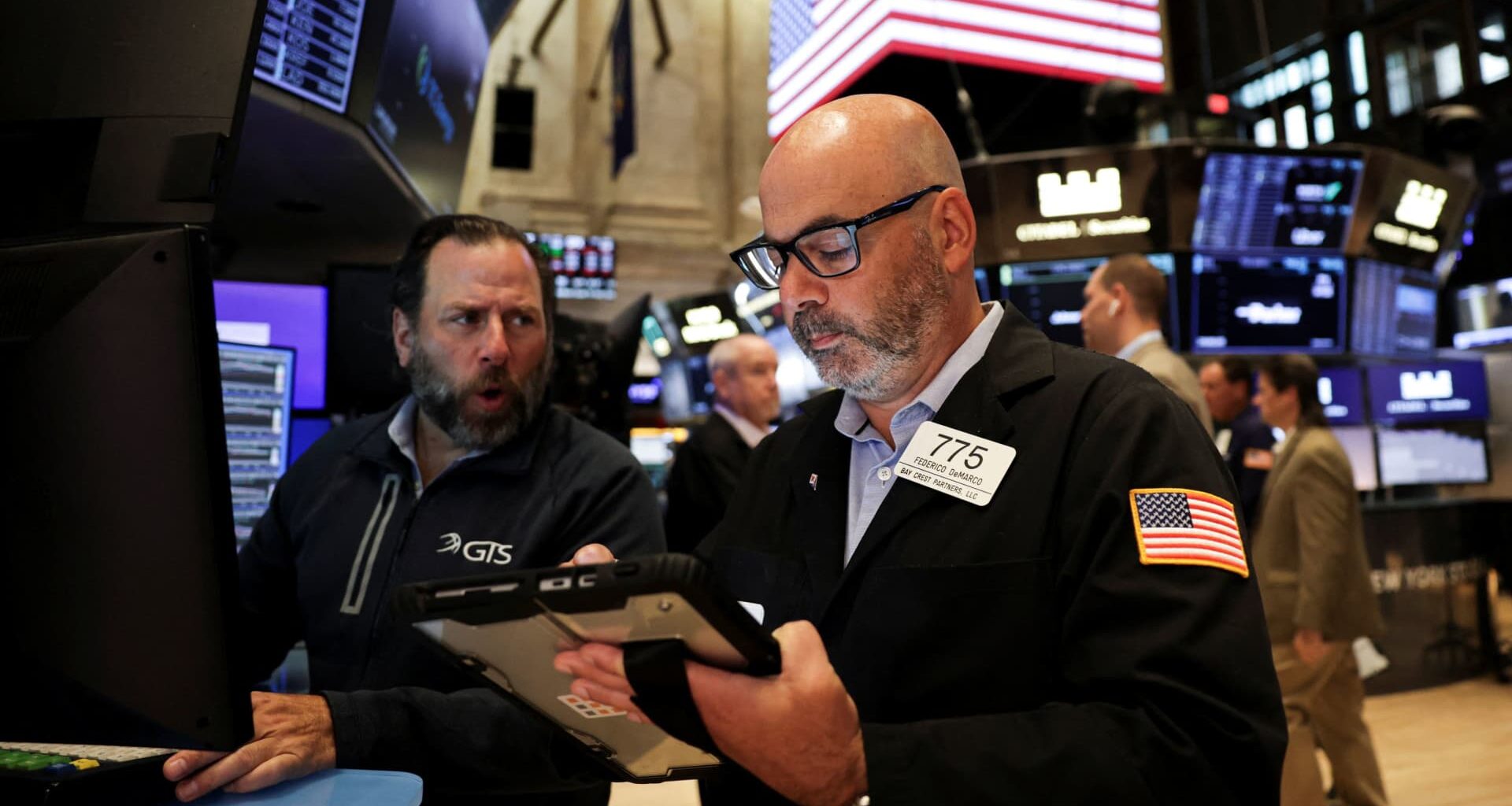A trader works on the floor at the New York Stock Exchange (NYSE) in New York City, U.S., Sept. 22, 2025.
Jeenah Moon | Reuters
The S&P 500 took a pause from its recent gains on Tuesday as doubts about the sustainability of the artificial intelligence bull trend plagued investors.
The broad market index pulled back 0.3% after reaching a new all-time intraday high earlier in the session, its fourth consecutive record. The Nasdaq Composite fell 0.4%, while the Dow Jones Industrial Average hovered around the flatline and had also scored a fresh record high in the trading day.
Nvidia shares were down more than 2%, while Oracle lost 4% as worries surfaced around the AI trade. The move comes a day after the chipmaker announced a $100 billion investment in OpenAI. While the announcement gave a boost to the stock and the broader marker in the previous session, some investors fear the move resembles events seen in previous bubbles.
Still, the broader market was able to hang on and keep losses to a minimum on Tuesday. The small-cap Russell 2000 additionally managed to reach an all-time high during the session.
“You’re getting just a broad participation as a result of the One Big Beautiful Bill Act, which kind of solidified people’s tax expectations, and then you did get the rate cut from the [Federal Reserve], so you’ve had this sort of break for smaller companies on writing off more interest and then lowering the cost of interest with the Fed’s cutting last week,” Tom Hainlin of U.S. Bank Asset Management told CNBC.
“That’s helping broaden things out from just large cap tech companies investing in [artificial intelligence],” the firm’s national investment strategist added.
Investors are awaiting Friday’s release of the latest reading of the personal consumption expenditures price index, which is the Fed’s preferred inflation measure.
They’re also watching the increasing chance of a government shutdown ahead of a Sept. 30 deadline after the Senate last week rejected Republican and Democratic proposals to at least temporarily fund the federal government. On Tuesday, Trump canceled a planned meeting this week with top Democrats in Congress, saying that no meeting “could possibly be productive.”
The stock market has historically brushed off concerns tied to government shutdowns, but this time around could be different as the economic backdrop heading into a shutdown is the weakest in more than two decades.

